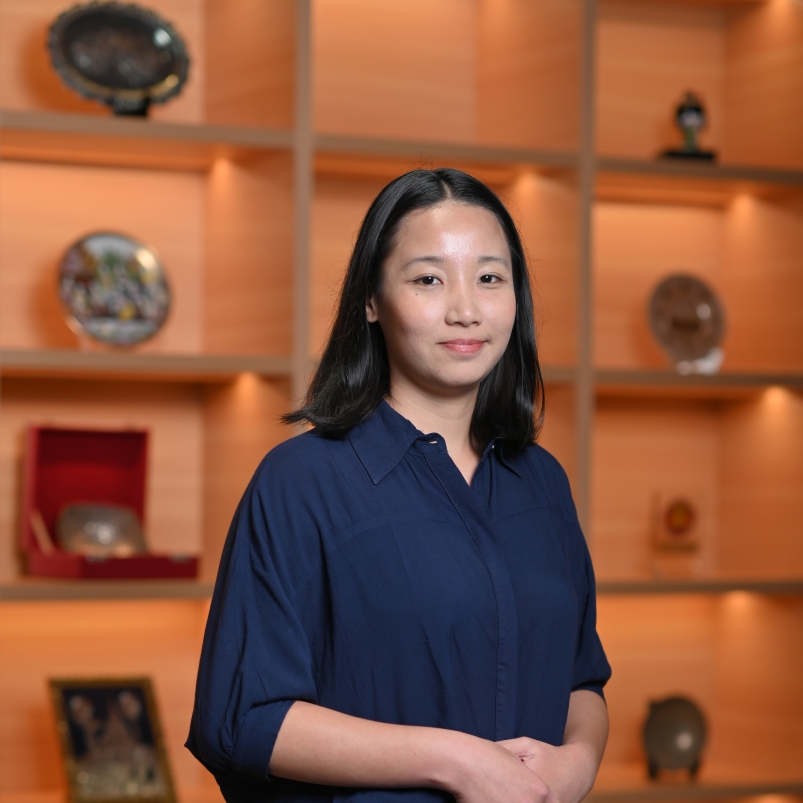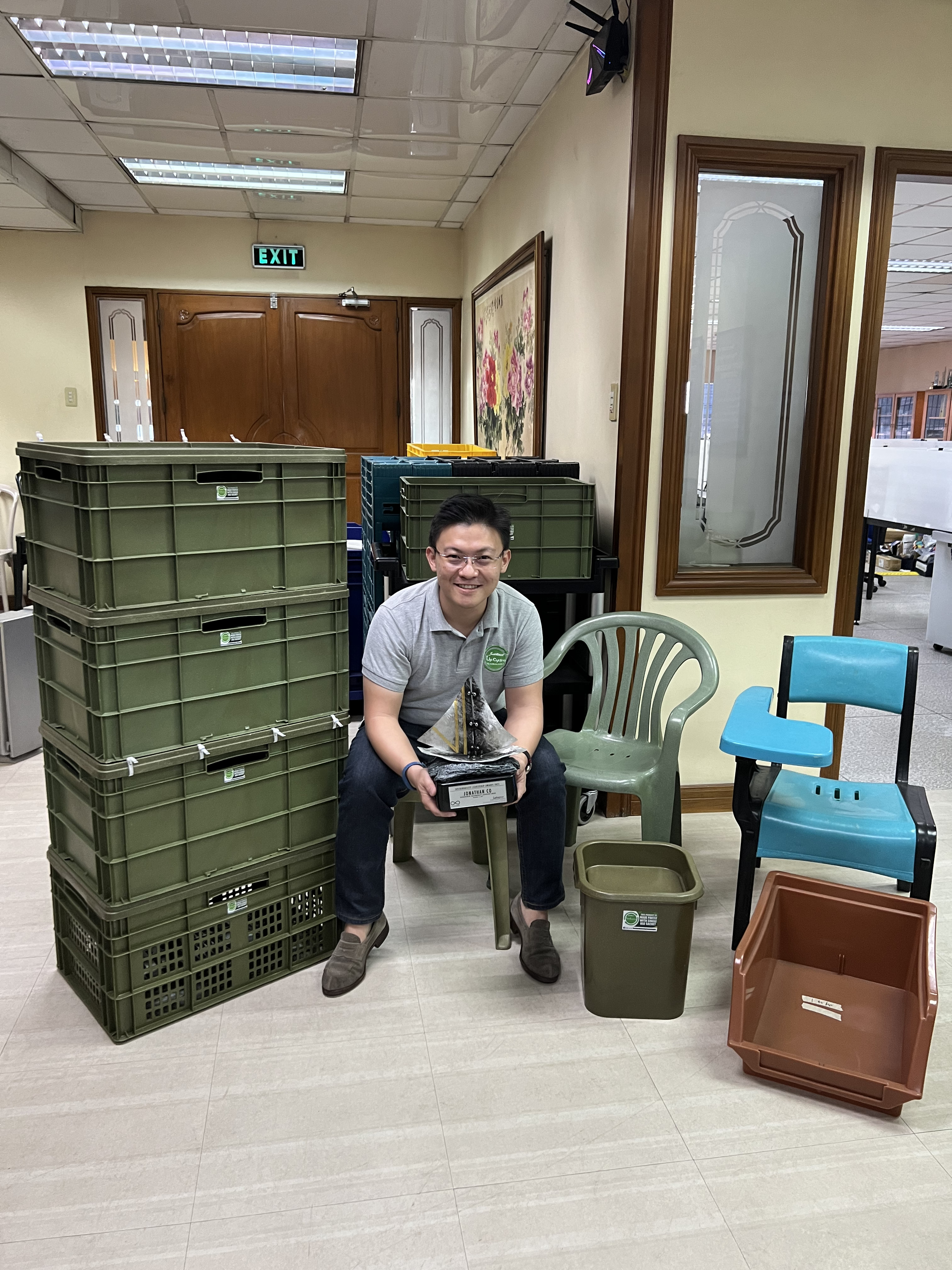

Vientiane, 16 August 2024: The ‘Capacity Building Programme for Reducing Recycling-Related Marine Plastic Pollution in ASEAN Cities,’ also known as the CaRMPAC Project, was officially launched at Settha Palace Hotel in Vientiane, Lao PDR.
The CaRMPAC Project, which is recognized by the ASEAN Secretariat, will be implemented by the Asian Institute of Technology, Regional Resource Centre for Asia and the Pacific (AIT RRC.AP) and supported by ERIA’s (Economic Research Institute for ASEAN and East Asia) Regional Knowledge Centre for Marine Plastic Debris. It continues from an earlier project titled ‘Development and Dissemination of Technical Guidelines for the Prevention of Plastic and Pellets Pollution from Factories and Informal Recycling Facilities in ASEAN’ (Phase 1 Project). The Phase 1 Project focused on assessing the situation on the ground and developing technical guidelines to prevent the leakage of residual plastics from recycling processes in six cities in Lao PDR, the Philippines, Thailand, and Viet Nam. The CaRMPAC Project will now focus on disseminating these guidelines through training and capacity-building programmes for government officials and recyclers in a broader range of cities and countries.
The CaRMPAC Project’s launch event was held under the 2024 Lao ASEAN Chairmanship, organised by AIT RRC.AP in collaboration with the Lao Ministry of Natural Resources and Environment (MoNRE) and Zero Waste Laos (ZWL), with support from the Regional Knowledge Centre. The event was attended by representatives of ASEAN Member States (AMS), including focal points for the ASEAN Working Groups on Coastal and Marine Environment (AWGCME), Chemicals and Waste (AWGCW), and Environmental Education (AWGEE). The event also gathered plastic recyclers, industry stakeholders, and junkshop representatives, totaling approximately 70 in-person and online participants who discussed the Phase 1 findings and suggested the way forward for Phase 2.
During the welcome and opening session, keynote addresses were delivered by Mr Sounadeth Soukchaleun, Deputy Director General of the Department of Planning and Finance at the Lao MoNRE, Mr Reo Kawamura, Director of the Regional Knowledge Centre, and Dr Guilberto Borongan, Director of AIT RRC.AP. Mr Kawamura highlighted key takeaways from the Phase 1 Project, noting, ‘When we think of environmental sustainability, we also need to keep in mind the financial sustainability of the stakeholders involved.’
Following the keynote addresses, Mr Michikazu Kojima, Senior Research Fellow on Environmental Issues at ERIA, introduced the Regional Knowledge Centre and discussed several examples of plastic leakage from recycling facilities across the ASEAN+3 region (ASEAN plus China, Japan, and the Republic of Korea), underscoring the need for prevention measures.
Mr Solomon Huno, Senior Programme Officer of the Waste and Resource Management Cluster at AIT RRC.AP, presented an overview and outcomes of the Phase 1 Project, emphasising how the qualitative assessments conducted provided a better understanding of on-the-ground situations and helped develop stakeholder networks in the six cities, which will be crucial for the next stage of the project.
A panel discussion followed, featuring Prof. Vilas Nitivattananon from the School of Environment, Resources and Development at AIT, Dr Sidxay Markvilay of the Department of Environment of the Lao MoNRE, and Mr Chanthakad Souksavath of Chantha Recycling Company. The discussion centred on strategies for effective capacity building to prevent plastic and pellet leakage from recycling activities, including inclusive ways to engage and build trust amongst the different stakeholders involved.
In the afternoon, Dr Vatthanamixay Chansomphou from the Faculty of Environmental Sciences at the National University of Laos and Ms Souksaveuy Keotiamchanh from ZWL, who also served as the event's master of ceremony, presented some of the challenges faced by informal waste pickers and discussed potential strategies for effective capacity building. Throughout the event, participants actively engaged in discussions, asking questions, and making constructive remarks to the panellists and speakers.
Towards the event’s conclusion, the CaRMPAC Project was officially launched with a symbolic presentation of the assessment reports and technical guidelines from the Phase 1 Project by Dr Borongan, Mr Kawamura, Prof. Nitivattananon, and Dr Markvilay. Mr Huno then provided an overview of the upcoming CaRMPAC Project, elaborating on the work plan and expected outputs before the event concluded with closing remarks from Dr Borongan.
Read media coverage of the event at:
Nasional News, Pontianak Info, Dugout Philippines, Thailand Scoop, Pinoyaksyon News, Suara Jurnal, Boracay Island News Network, One Tech Avenue, Paradise Province, Times.co.id, Wazzup Pilipinas, Sekitar Kita, Bangbara, Daily Klik, Gerbang Indonesia, Istana Negara, Nusantara Pos, Kata Kabar.
Vientiane, 16 August 2024: The ‘Capacity Building Programme for Reducing Recycling-Related Marine Plastic Pollution in ASEAN Cities,’ also known as the CaRMPAC Project, was officially launched at Settha Palace Hotel in Vientiane, Lao PDR.
The CaRMPAC Project, which is recognized by the ASEAN Secretariat, will be implemented by the Asian Institute of Technology, Regional Resource Centre for Asia and the Pacific (AIT RRC.AP) and supported by ERIA’s (Economic Research Institute for ASEAN and East Asia) Regional Knowledge Centre for Marine Plastic Debris. It continues from an earlier project titled ‘Development and Dissemination of Technical Guidelines for the Prevention of Plastic and Pellets Pollution from Factories and Informal Recycling Facilities in ASEAN’ (Phase 1 Project). The Phase 1 Project focused on assessing the situation on the ground and developing technical guidelines to prevent the leakage of residual plastics from recycling processes in six cities in Lao PDR, the Philippines, Thailand, and Viet Nam. The CaRMPAC Project will now focus on disseminating these guidelines through training and capacity-building programmes for government officials and recyclers in a broader range of cities and countries.
The CaRMPAC Project’s launch event was held under the 2024 Lao ASEAN Chairmanship, organised by AIT RRC.AP in collaboration with the Lao Ministry of Natural Resources and Environment (MoNRE) and Zero Waste Laos (ZWL), with support from the Regional Knowledge Centre. The event was attended by representatives of ASEAN Member States (AMS), including focal points for the ASEAN Working Groups on Coastal and Marine Environment (AWGCME), Chemicals and Waste (AWGCW), and Environmental Education (AWGEE). The event also gathered plastic recyclers, industry stakeholders, and junkshop representatives, totaling approximately 70 in-person and online participants who discussed the Phase 1 findings and suggested the way forward for Phase 2.
During the welcome and opening session, keynote addresses were delivered by Mr Sounadeth Soukchaleun, Deputy Director General of the Department of Planning and Finance at the Lao MoNRE, Mr Reo Kawamura, Director of the Regional Knowledge Centre, and Dr Guilberto Borongan, Director of AIT RRC.AP. Mr Kawamura highlighted key takeaways from the Phase 1 Project, noting, ‘When we think of environmental sustainability, we also need to keep in mind the financial sustainability of the stakeholders involved.’
Following the keynote addresses, Mr Michikazu Kojima, Senior Research Fellow on Environmental Issues at ERIA, introduced the Regional Knowledge Centre and discussed several examples of plastic leakage from recycling facilities across the ASEAN+3 region (ASEAN plus China, Japan, and the Republic of Korea), underscoring the need for prevention measures.
Mr Solomon Huno, Senior Programme Officer of the Waste and Resource Management Cluster at AIT RRC.AP, presented an overview and outcomes of the Phase 1 Project, emphasising how the qualitative assessments conducted provided a better understanding of on-the-ground situations and helped develop stakeholder networks in the six cities, which will be crucial for the next stage of the project.
A panel discussion followed, featuring Prof. Vilas Nitivattananon from the School of Environment, Resources and Development at AIT, Dr Sidxay Markvilay of the Department of Environment of the Lao MoNRE, and Mr Chanthakad Souksavath of Chantha Recycling Company. The discussion centred on strategies for effective capacity building to prevent plastic and pellet leakage from recycling activities, including inclusive ways to engage and build trust amongst the different stakeholders involved.
In the afternoon, Dr Vatthanamixay Chansomphou from the Faculty of Environmental Sciences at the National University of Laos and Ms Souksaveuy Keotiamchanh from ZWL, who also served as the event's master of ceremony, presented some of the challenges faced by informal waste pickers and discussed potential strategies for effective capacity building. Throughout the event, participants actively engaged in discussions, asking questions, and making constructive remarks to the panellists and speakers.
Towards the event’s conclusion, the CaRMPAC Project was officially launched with a symbolic presentation of the assessment reports and technical guidelines from the Phase 1 Project by Dr Borongan, Mr Kawamura, Prof. Nitivattananon, and Dr Markvilay. Mr Huno then provided an overview of the upcoming CaRMPAC Project, elaborating on the work plan and expected outputs before the event concluded with closing remarks from Dr Borongan.
Read media coverage of the event at:
Nasional News, Pontianak Info, Dugout Philippines, Thailand Scoop, Pinoyaksyon News, Suara Jurnal, Boracay Island News Network, One Tech Avenue, Paradise Province, Times.co.id, Wazzup Pilipinas, Sekitar Kita, Bangbara, Daily Klik, Gerbang Indonesia, Istana Negara, Nusantara Pos, Kata Kabar.

Research Associate


